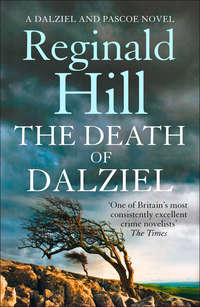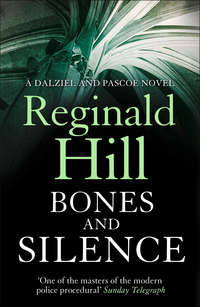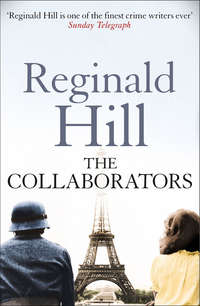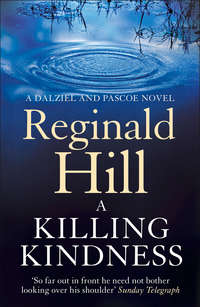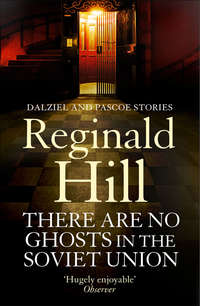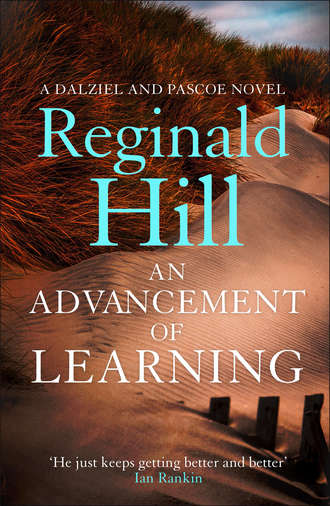
Полная версия
An Advancement of Learning
‘No, Franny,’ said the pretty girl in the blue nylon overall. ‘Just about the lists.’
She sounded apologetic, almost distressed, at having so little to tell.
‘You did well, love,’ he said, nodding once, still not looking at her.
‘Franny,’ said the girl. ‘Tonight. It is tonight, isn’t it? May I come again?’
Now he turned his head and looked full in her face with his light blue eyes.
‘Of course you may. We were expecting you.’
Flushing with pleasure, the girl slipped out of the door with the expertise of one used to leaving rooms unobtrusively.
‘Is that wise?’ asked a long-haired sallow-faced girl with low-slung breasts.
‘Is what wise, Sandra?’ he asked patiently.
‘Her, Elizabeth, coming along. I mean, outsiders can mean trouble.’
‘What you mean is, she’s a kitchen-maid,’ said a small, dark-haired, moustachioed youth fiercely. This was Stuart Cockshut, the Union secretary and Franny’s right-hand man. ‘God, what’s the point of trying to do anything if you can’t shake off your reactionary concepts of an elitist society?’
‘Belt up,’ said Anita Sewell who was sitting on the floor staring moodily into the empty fireplace. ‘Stop talking like a colour-supplement student. It’s not politics that’s bothering Sandra. It’s sex. And she’s right. Franny knows when he’s on to a good thing. He gets an extra slice of juicy meat at dinner. And all the gravy he can manage, don’t you, ducky?’
‘Nervous, love?’ Franny said to her gently. ‘Don’t be.’
‘She’ll be all right on the night,’ said Sandra viciously.
Stuart sniggered. Franny spoke again, reprovingly.
‘It has nothing to do with appetite of any kind, my loves. Nor with politics, Stuart. We do live in an elitist society, despite all you say. But the elites have nothing to do with class, or intellectualism.’
He swung his legs down off the sill and stood up.
‘This business interests me. I’ve always had a feeling about that statue. Something compelled me to it.’
Suddenly he laughed and ran his fingers through his hair, looking for a moment about eighteen.
‘I thought it was just the tits.’
The others laughed too, except for Sandra who was seated on the floor next to Anita. He looked down at her thoughtfully and moved his leg till his calf touched her shoulder. She leaned into his leg and closed her eyes.
‘I wonder whose bones they are,’ said a petite round-faced girl from a corner.
‘The police will find out soon enough,’ said Stuart, making it sound like a fault.
‘Perhaps we can beat them,’ said Franny.
They looked at him puzzled for a moment.
‘Of course!’ said the round-faced girl, jumping up and opening a cupboard behind her. From it she took a large box which she put on a low coffee-table. Out of the box she produced a Ouija board which she quickly set up on the table.
Franny knelt down and put his index finger on the planchette. He contemplated Sandra’s pleading gaze for a moment, shook his head minutely and said, ‘Anita.’
The girl touched the other side of the planchette.
Slowly it began to move.
Eleanor Soper was immersed in her favourite recurring day-dream in which her first novel had met with tremendous critical and popular success. Her elbows rested lightly on the untidy sheets of closely scribbled-on foolscap which were scattered over her desk. She was modestly accepting the plaudits of her colleagues and in particular, like a television instant replay machine, her mind kept on bringing Arthur Halfdane forward to offer his obviously deeply felt congratulations.
She was brought back to reality by a knock at the door.
‘Shit!’ she said. Her own subconscious was capable enough of diverting her energies away from her novel without the additional annoyance of external interruption.
The knock again.
Angrily, she opened the door.
‘Hallo, Ellie,’ said Pascoe.
‘For Godsake,’ she said, motionless with surprise.
Pascoe reached out his hand. She took it and they stood there holding hands, looking at each other.
Pascoe felt relieved and disappointed at the same time as he took in her short black hair cut to the contours of her finely structured head; her grey eyes, questioning now; her strong chin, raised slightly aggressively. He had not known what to expect, had half-feared an immediate return of all the old welter of emotions and passions. Looking into his own mind, he could find no trace of them. That was good. But still he felt sorry that something so strong could have gone so completely.
He looked again at the once so dear and familiar features. Nothing. But he knew he was keeping his mind well away from the equally dear and familiar curves and hollows lying beneath the old sweater and the threadbare slacks.
‘Come in,’ she said. ‘Sit down. This is – well, Christ, it’s a surprise. I don’t know … what are you doing here?’
‘Combining pleasure with business.’
‘Business? Oh. You mean the statue?’
‘I’m afraid so. But you’re the pleasure.’
They both laughed and when they stopped, the atmosphere had become easier. They spent the next few minutes exchanging news of old university acquaintances. Or rather Ellie provided most of the news and Pascoe most of the questions. He was surprised to find how eager he was for information.
‘You haven’t kept in touch with anyone then?’ she asked finally.
‘Christmas cards. Wedding invitations. That sort of thing.’
‘Summonses. Warrants. That sort of thing,’ she answered, half-joking, half-serious.
‘I’ve been spared that,’ said Pascoe, wholly serious.
She looked embarrassed for a second, a faint flush touching her cheek-bone.
Pascoe began to reach out a hand to touch her face but stopped himself in time.
‘Well, you’ll be spared it here too,’ Ellie said emphatically. ‘The statue had been up for five years or so when I arrived. What’s it all about, anyway?’
‘We’re still trying to find out. Who has been here since the thing was put up, then?’ asked Pascoe casually. He didn’t need the information. He had a list in his document case which told him exactly.
‘I’m not sure. The oldest inhabitants, obviously. Jane Scotby. And Miss Disney. Not Landor, though. That’s obvious. He came when Miss Girling died. The history man, Henry Saltecombe. And George Dunbar, head of stinks. There might be others, we’re a large staff and I haven’t got to know them all yet. But what’s your interest? You don’t think someone on the staff then was responsible?’
‘Responsible for what?’
‘Why, for killing whoever got killed and burying them in the garden,’ said Ellie in surprise.
‘Someone’s responsible,’ replied Pascoe. ‘Any likely runners?’
The atmosphere was changing again.
‘I should have thought that your best approach was to discover who it was that got killed,’ said Ellie a little stiffly.
‘We’re working on it,’ said Pascoe cheerfully.
He glanced at his watch. Dalziel would be expecting some kind of report soon.
‘I must be off. Look, any chance of seeing you later tonight? There’s lots to talk about.’
Ellie hesitated a moment before saying, ‘Yes, surely. I’m dining in tonight and I usually pop into the bar afterwards, about eight. You’ll still be around then? Good. Anyone will direct you.’
‘Right,’ said Pascoe at the door. ‘It was nice to see your name on the staff-list. See you!’
He went out with a casual wave.
‘No doubt,’ said Ellie to the closed door.
She picked up her pen again but did not start to write for some time. She was trembling slightly. He looked at me like a bloody suspect! she thought. Not a sign of emotion. A useful contact! Sod him.
Convinced soon that all her trembling sprang from indignation, she began to write again but had to stop soon to light one of her infrequent cigarettes. Sod him!
Rather sticky, thought Pascoe with some regret as he walked down the corridor from Ellie’s room.
But I won’t work at not being a policeman. Not just to be liked. Not by anyone. It’s not worth it. He congratulated himself once again on his self-possession during the encounter. Then he bumped into a large beautifully rounded girl in a frivolously short skirt.
‘Sorry,’ he said. She smiled and massaged herself voluptuously. He felt his self-possession crack.
Well, sometimes it may be worth it, he emended cautiously.
When he reached Landor’s room, it was empty. He took the lists Dalziel had requested of him from his case and laid them neatly on the desk.
Then he stood back to view the effect. Dissatisfied, he readjusted them minutely to attain perfect symmetry.
‘You’ll make someone a lovely housekeeper,’ said Dalziel from the door.
Five witty answers and several bluntly obscene ones ran through Pascoe’s mind, but he used none of them, merely bowing Dalziel with as much irony as he dared to the desk.
‘What’s this lot then? Lot of bloody names. No good till we know who got the chop, are they?’
‘This might help,’ said Pascoe, delicately touching the central list.
‘Let’s see then. Persons reported missing between … well, you tell me, eh? There might be long words I’d have trouble with.’
It would be nice to think the sneers derived from an affectionate respect. Or perhaps not. Dalziel, according to oral tradition, had destroyed whatever lay between him and his wife despite, or because of, his almost canine affection for her. That had been before Pascoe met him. He had learned the hard way just how much of Dalziel’s invitations to familiarity to accept.
Now he picked up the list and gave it an unnecessary glance. It didn’t do to appear too efficient.
‘Only two real possibilities so far, sir,’ he said. ‘Mrs Alice Widgett, aged thirty-three, housewife. Last seen leaving her home on August 27, destination unknown. She left a tatie-pot in the oven and two children watching television.
‘Secondly, Mary Farish. Widow. Aged forty-five. She’s the nearest. Lived all alone on the outskirts of Coultram. She had a dental appointment at 3 P.M. on November 9th. She left home at 2.15, but never reached the dentist.’
‘That’s what I feel like, too,’ said Dalziel, sticking a nicotine-stained forefinger into his mouth and sucking noisily. ‘Best reason for disappearing I know. Well, the dentist’s a help. He’s still around?’
‘Yes, sir. I’ll take details of the jaw along as soon as we get them from the lab.’
‘Who are taking their bloody time. Why no one else? It looks a fair list.’
‘Yes. Some of them are men, of course.’
‘Why? We know the sex, don’t we? Even I can tell the difference between a male and a female skeleton.’
‘Of course,’ said Pascoe soothingly. ‘I just thought it would be useful to know which men felt it necessary to disappear quietly about that time. And the other six women were either seen boarding trains or long-distance buses, or some subsequent contact has taken place, a postcard, a telephone call. This doesn’t cut them out altogether, of course.’
‘Worse bloody luck,’ said Dalziel gloomily. ‘Have you got someone contacting parents, family, friends, again?’
‘No,’ said Pascoe. ‘It didn’t seem necessary. I’ll get their files of course.’
‘On which you’ll find nothing’s been done for five years. Naturally. We can’t spend our precious bloody time chasing around after runaway adults. But you’ll probably find half the sods have turned up again and no one’s thought to tell us. They usually don’t.’
‘I’ll get on to it right away,’ said Pascoe.
‘By the way. Did they have red hair?’
‘Mary Farish did. And the other’s described as auburn.’
‘It might help. But then she might have come from a thousand miles away.’
‘A Central European, you mean?’ asked Pascoe against his better judgment. ‘That would narrow things down.’
Dalziel squinted at him calculatingly for a moment.
‘Shove off,’ he said. ‘We’ve all got work to do.’
‘Hey!’ he called after him. ‘What about that bint of yours? Get anything there?’
He backed up the double entendre with a toothy leer. Pascoe answered straight.
‘Not much. I’m seeing her tonight for a drink. All in the line of duty, of course. She hasn’t been here long enough to know much. I did gather they’re having a bit of excitement at the moment. Some lecturer’s been knocking off a student and there’s a bit of a rumpus.’
‘Who?’
‘A fellow called Fallowfield. Biologist.’
‘That figures. Was he here five years ago?’
He answered the question himself by running his gaze quickly down the list before him.
‘No. Then he’s of no interest. Dirty sod. Though it must be a temptation. There’s a lot of it around. I think I’ll take a walk and see what’s going on. You can stop here. You’ll need the phone.’
Jauntily he left the room. Pascoe had to close the door behind him. He jerked two fingers at the solid oak panels.
When he turned round he found two students solemnly staring at him through the large open window. They nodded approvingly, each tapped the side of his nose with the forefinger, and they went on their way. Despite the heat, Pascoe closed the window before he started his telephoning.
Chapter 5
Who taught the raven in a drought to throw pebbles into a hollow tree, where she espied water, that the water might rise so as she could come to it?
SIR FRANCIS BACON
Op. Cit.
Sam Fallowfield sat in a deckchair in front of his cottage which looked down over the shingle to the level sands and the very distant sea. When the tide went out here, it kept on going till an onlooker could have doubts whether it ever meant to return. The cottage was solidly built of massive blocks of dark grey stone. It had been whitewashed at some stage but the salt and sand-laden winter gales had long ago stripped away this poor embellishment. It was an end cottage of a block of four, each of which had a small garden at the front and a shared cobbled yard behind. The other three were used only as holiday bases, one by the owner of the block only, while the other two were rented out by the week during the summer. Fallowfield alone lived there all the year round and had done so for the past five years ever since arriving at Holm Coultram.
It was early evening. Soon the holiday-makers, temporarily his neighbours, would be returning from whatever exciting expedition they had so noisily launched that morning. But for the moment he had the place to himself. One or two featureless figures were distantly visible in pursuit of the sea. And away to his right a thin flag fluttered on an elevated plateau to mark the outermost boundary of the golf course. The college was completely out of sight more than half a mile inland.
It was a situation to make a man as indifferent to society as Fallowfield sigh with contentment.
He sighed.
‘That sounds as if it comes from the heart, Sam,’ said a voice behind him.
‘Come and sit down, Henry,’ he said without looking round. ‘You’ll find a beer and another chair behind the door.’
Gratefully Henry Saltecombe lowered himself in the deckchair which he erected with a deftness unpromised by his podgy hands.
‘Hope I’m not obtruding, my dear fellow, but I felt like a constitutional before driving back to the bosom of my family.’
Henry had a pleasant detached house on a modern estate about eight miles down the coast. It overflowed with four children, a dog, a cat, and his wife. He loved them all dearly but was rarely in a hurry to return home to them. He had married late when the habit of peace and solitude had long since moulded itself comfortably around his shoulders, and it was not easily to be torn away.
‘What happened to you then?’ Henry asked after he had opened a can of light ale and jetted it expertly into the O of his mouth. ‘I noticed you disappeared when all the excitement started. The Law has arrived in all its majesty, controlled by a corpulence in excess even of mine. There have been comings and I have no doubt there will be goings. I have even seen one or two students with facial expressions distantly related to alert, intelligent interest. Simeon suspects it’s an act of Walt, and Walt firmly believes it’s an act of God.’
‘And the police?’
‘The police are less public about their suspicions. But it is exciting. At first I thought it was merely some animal remains. But it appears to be certainly human. I myself think the solution is simple.’
‘How?’
‘I have no doubt it will turn out to be a student jape. They knew all about the garden controversy. It was no secret and even if it had been, they have a supremely efficient intelligence system, if only in the military sense. So they get some bones, an anatomical specimen perhaps, and they bury them beneath the statue. What fun! Something to enliven a long, dull, very hot term.’
Fallowfield grinned wryly.
‘I should have thought the term had been sufficiently enlivened already.’
Henry was immediately apologetic.
‘My dear fellow, I never thought … that business is far too serious for anyone to be entertained by it.’
Fallowfield twisted in his chair so that he could see the other’s face. Its rotundities were set in a pattern of sympathetic seriousness.
‘Come off it, Henry. It’s the most entertaining thing that’s happened here in years. One of the few consolations I have in it all is the pleasure I know I am giving my colleagues.’
Henry shook his head in protest, then began laughing. Fallowfield joined in.
‘You see,’ he said.
‘No, Sam,’ said Henry. ‘It’s you. You just don’t strike one as a career man, so how can I worry about your career being ruined? It’s the effect on you personally that matters and you give a damn good impression of not giving a damn. Which makes it easier to spectate.’
‘Enjoy yourself as much as you can,’ said Fallowfield. ‘Who knows whose turn it’ll be next?’
He said it lightly, but it stopped the conversation for a minute.
‘You did bed the girl, didn’t you, Sam?’ asked Henry finally.
‘I’ve never denied it,’ replied the other.
‘Here?’ He indicated the cottage.
Fallowfield shrugged.
‘Up against a tree. Out among the dunes. In the principal’s study. What difference does it make where?’
‘She always struck me as a nice sort of girl.’
‘What difference does that make?’
‘Every detail makes some difference, Sam,’ said Henry earnestly. ‘There’s a difference between casual promiscuity and a real love affair. And between malevolence and malleability. She says you conspired to get rid of her. I know this couldn’t be true. Now, does she really believe it, or is she merely being used?’
‘Used? How?’ Fallowfield’s tone was sharp.
‘Politically, I mean. Things have been quiet here for a while. They seem to have got all they wanted. But people like that youth Cockshut are never satisfied. And there’s something about Roote I don’t like either. They could be looking for another excuse to start trouble again.’
‘Is that all?’ Fallowfield laughed. ‘I suppose it might be something like that.’
‘You don’t seem much concerned.’
‘Why should I be? It’s all a game, isn’t it? It’s about as real as that.’
He pointed towards the distant flag which was being held now by one unidentifiable figure while another tried to strike an invisible ball into the hole. From his demeanour it seemed likely he had missed.
‘You’re talking of the game I love,’ said Henry, glad to be able to shift from the seriousness of the past couple of minutes.
‘I’m sorry,’ said Fallowfield with a smile. ‘I try never to be frivolous about other people’s games, then they won’t be amused or offended by mine. Games are all metaphors after all, and often euphemistic at that. Ah, here comes happiness.’
A large shooting brake was jolting down the track which curved for a couple of furlongs from the metalled road down to the cottages. Even at a distance the car windows seemed incredibly crowded with faces.
‘Four adults, seven children,’ observed Fallowfield, ‘I still don’t know who belongs to whom. Adults or children. They go soon, thank God.’
‘I must be off this minute,’ said Henry, rising. ‘Thanks for the beer. Oh, by the way, I brought you some mail from your pigeon-hole. I didn’t know whether you would be in tomorrow. Not much. And one looks like your luncheon bill. You must come and have a bit of supper with us one night next week. Let me know when’ll suit you. ’Bye.’
‘I will. ‘Bye.’
They both knew he wouldn’t. He never did.
Henry made his way back through the cottage and out into the courtyard, waving his walking-stick with mock ferocity at the tidal race of small bodies which poured out of the now arrived car.
Behind him on the other side of the house, Fallowfield’s face had once more lost all trace of the animation it had held during Henry’s visit.
He was staring down at the single sheet of paper he had taken from the first envelope he had opened.
It was headed by that day’s date. The message was simple.
‘I must see you tonight.’
It was signed ‘Anita’.
Dalziel did not receive the report on the bones until after 7 P.M. Pascoe, anticipating fall-out from his superior’s wrath, had rung the lab at 5.30 to discover the report had been sent to the superintendent’s office. He re-routed it before reporting to Dalziel, who was much less condemnatory than might have been expected.
‘Limited minds,’ he said. ‘Specialization means you can only think about one thing in one way. I’m not specialized.’
‘No, sir,’ said Pascoe.
‘Traffic problems to pornographic films at Buckingham Palace. I’ll deal with them all. Now you, Pascoe. You’re in a dangerous position.’
‘Yes, sir.’ Dalziel had had another half hour alone with Landor. Pascoe reckoned the principal had been foolish enough to bring out the bottles. We all learn from our mistakes.
‘You’ve got specialized knowledge. Or think you have. Without being in a specialized job. You’ve got this … whatever it is …’
‘Degree, sir,’ said Pascoe helpfully.
‘I know it’s a bloody degree. But in something, isn’t it?’
‘Social sciences.’
‘That’s it. Exactly. Which equips you to work well in …’
‘Society, sir?’
‘Instead of which you have to work in …’
‘Society, sir?’
There was a long pause during which Dalziel looked at the sergeant more in sorrow than in anger.
‘That’s what I mean,’ he said finally. ‘You’re too bloody clever by half.’
Neither ‘yes’, nor ‘no’ seemed suitable here, so Pascoe preserved a diplomatic silence.
‘I’m stopping here,’ said Dalziel suddenly. ‘Landor’s fixed me up with a room. It’s a long drive home.’
To nothing, thought Pascoe. Dalziel seemed to read the thought.
‘You might as well stay too. There’s no reason for you to go back, is there?’
‘No, sir.’
Pascoe had had a date that night, but he had put it off hours earlier as he saw the way things were going. It had been a pity. He had felt certain he wouldn’t have had to spend that particular night alone in his flat.
‘Right. Then you’ll be at hand. They’re going to give us dinner in here. I think we’re a bit low for High Table. Conversation-killers, that’s what we are. Even you, Pascoe, who might have been One Of Them.’
Pascoe again skirted round the comment.
‘What about the principal, sir? Isn’t he going to want this room back pretty soon?’
Dalziel frowned.
‘I hope we’ll be able to give it to him pretty soon. But evidently part of these flash new buildings you see going up around the place is a new administrative centre. He’s quite happy to have an excuse to start in there ahead of schedule.’
‘Odd,’ said Pascoe. ‘This is … nice.’
He looked around the comfortably proportioned, panelled room.


